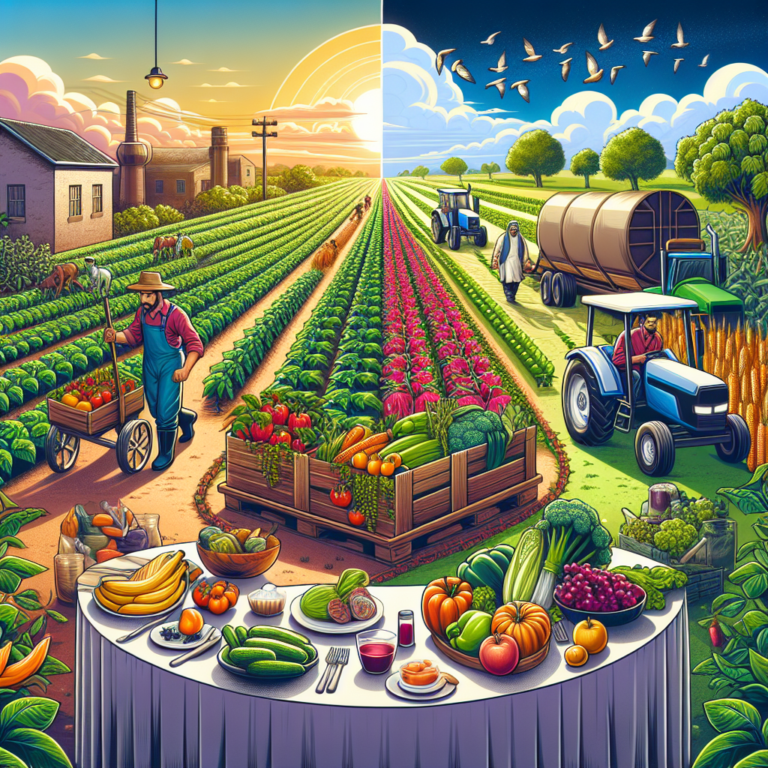From farm to table, sustainable practices are reshaping the way crops are produced and consumed. As more people become aware of the environmental impact of traditional farming methods, there has been a growing movement towards sustainable agriculture. This shift towards sustainability is not only benefiting the environment, but also improving the quality of our food and supporting local communities.
One of the key principles of sustainable agriculture is reducing the use of chemical pesticides and fertilizers. Instead, farmers are turning to organic methods such as crop rotation, cover cropping, and natural pest control to keep their crops healthy and productive. This not only helps to protect the soil and water from pollution, but also ensures that the food we eat is free from harmful chemicals.
Another important aspect of sustainable agriculture is promoting biodiversity on the farm. By planting a variety of crops and creating habitats for beneficial insects and wildlife, farmers can improve the health of their ecosystem and reduce the need for synthetic inputs. This approach not only helps to protect endangered species and preserve natural habitats, but also helps to maintain the balance of the ecosystem and improve the resilience of the farm.
In addition, sustainable agriculture also focuses on conserving water and energy resources. Farmers are implementing practices such as drip irrigation, rainwater harvesting, and renewable energy technologies to minimize their impact on the environment. By using water and energy more efficiently, farmers can reduce their operating costs and improve the sustainability of their operations.
Furthermore, sustainable agriculture is also reshaping the way crops are transported and marketed. Farmers are increasingly turning to local markets, community-supported agriculture (CSA) programs, and farm-to-table restaurants to sell their produce directly to consumers. By shortening the supply chain and reducing the carbon footprint of transportation, farmers can ensure that their crops are fresh, nutritious, and environmentally friendly.
Overall, sustainable agriculture is a win-win for farmers, consumers, and the environment. By adopting practices that are environmentally friendly, socially responsible, and economically viable, we can create a food system that is both sustainable and equitable. From farm to table, sustainable practices are reshaping crop production and providing us with healthier, tastier, and more environmentally friendly food options.
